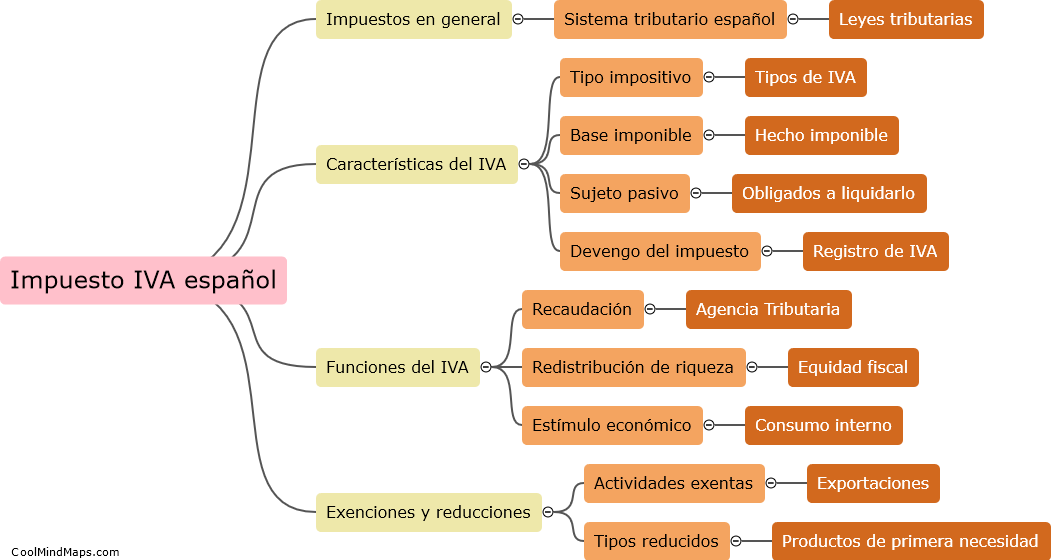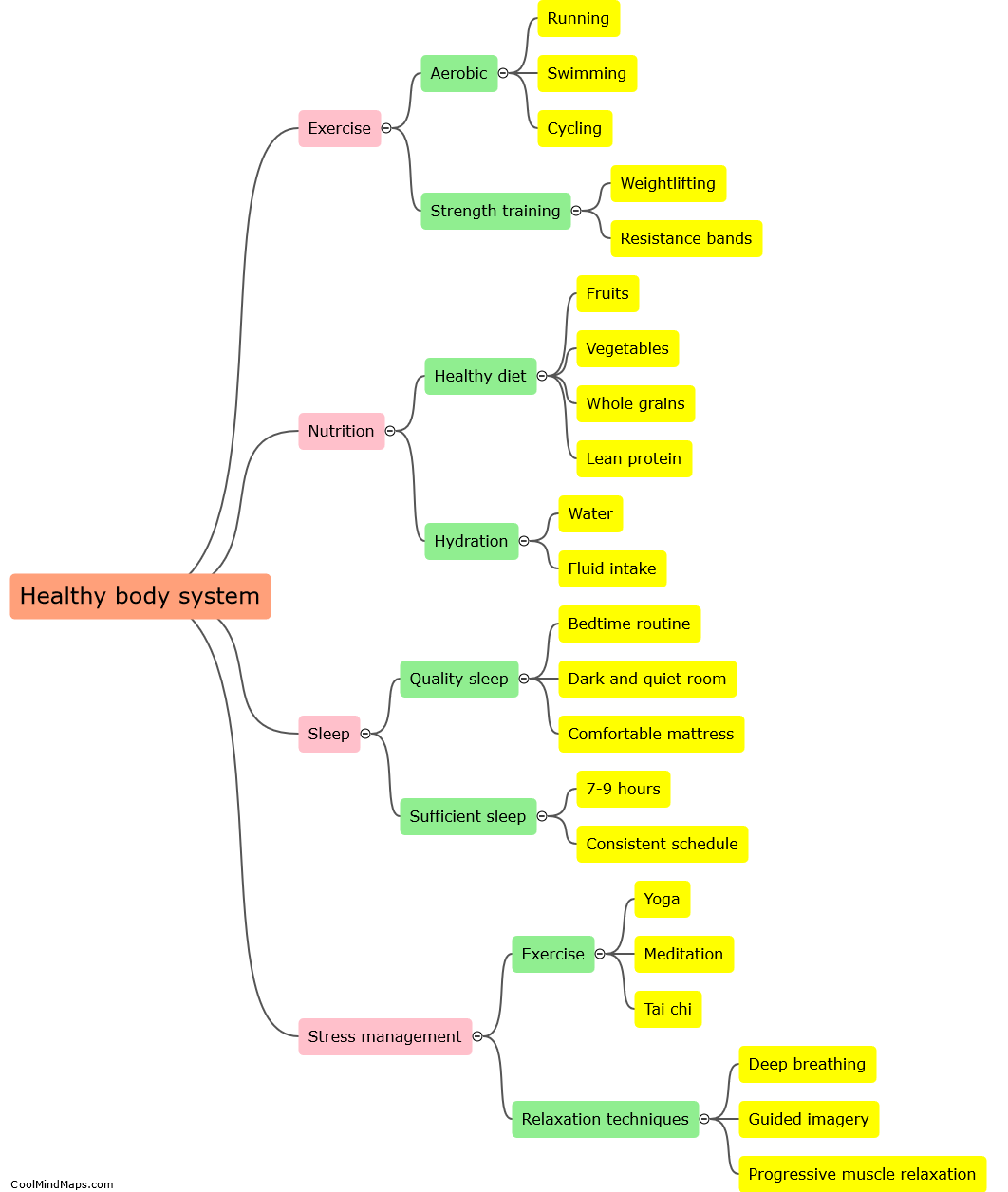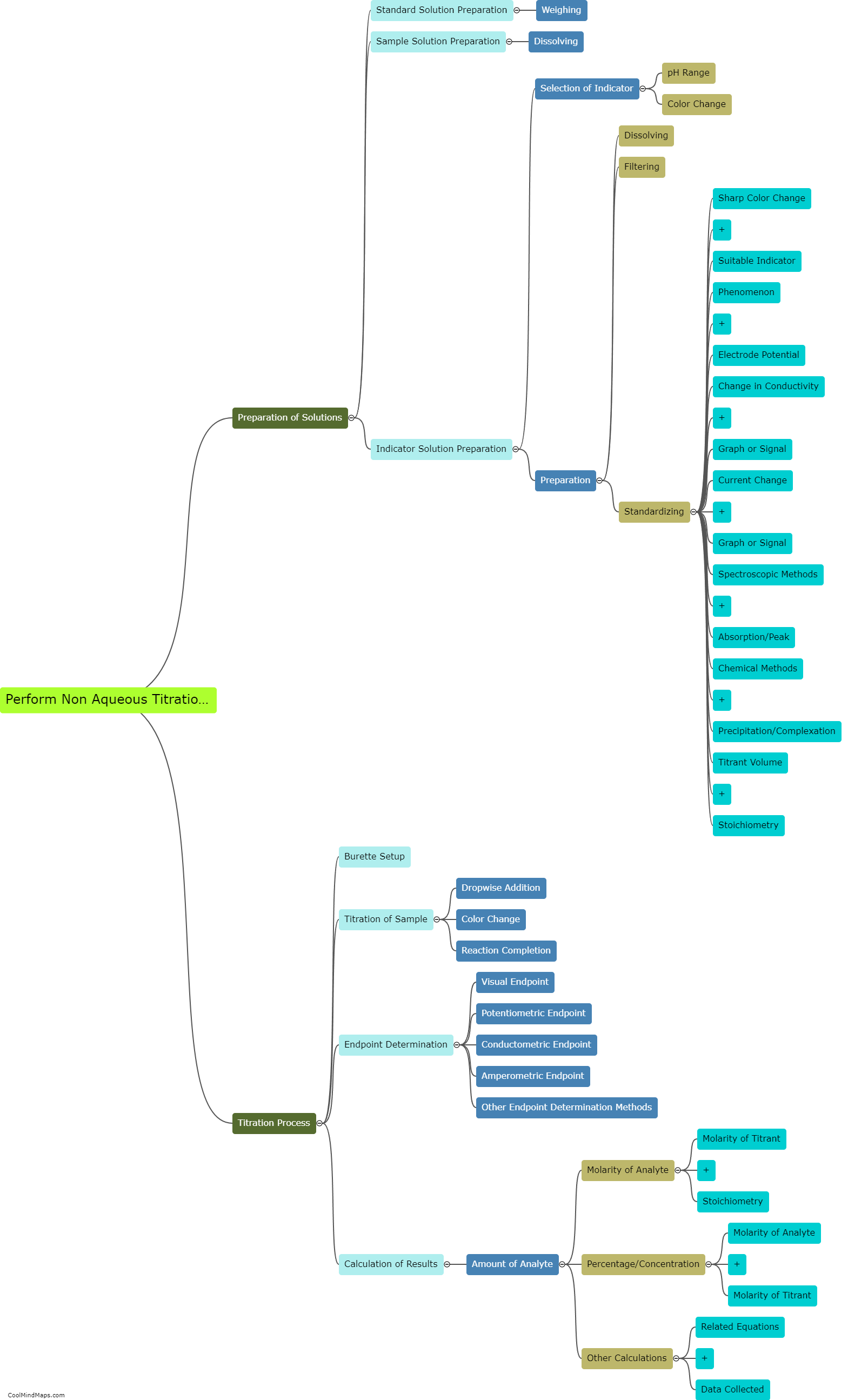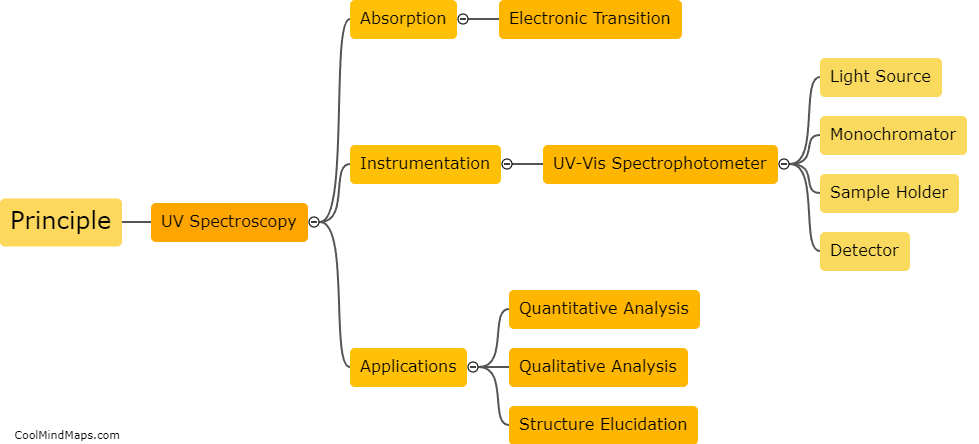What is a non aqueous titration?
A non-aqueous titration is a type of titration where the solvent used is not water. In this method, a non-aqueous solvent, such as an organic solvent like ethanol or acetonitrile, is used to dissolve the analyte and the titrant. This technique is commonly employed when the analyte or the titrants are not soluble in water or when water reacts with either the analyte or titrant, leading to inaccurate results. Non-aqueous titrations often require specialized equipment, such as non-aqueous electrodes and non-aqueous reference solutions, to ensure accurate measurements. This method provides an alternative approach for conducting titration and allows for the determination of various chemical compounds that may not be feasible using traditional aqueous titration methods.
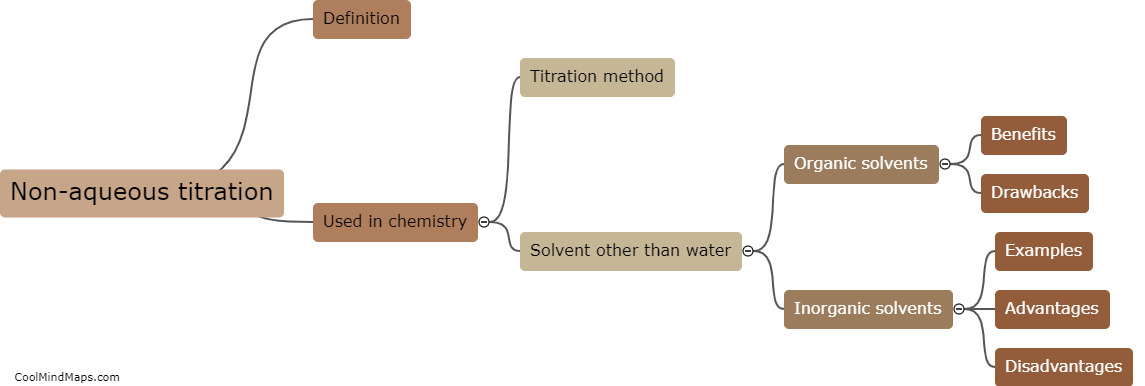
This mind map was published on 28 September 2023 and has been viewed 110 times.


